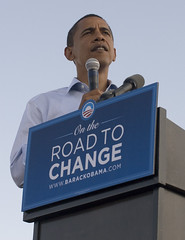For most of my life, the police have been on my side.
They've helped protect the businesses and buildings I've owned. They've patrolled the neighborhoods I've lived in. They've brought law enforcement and a helpful presence to the places I've traveled. They've held me accountable - for the most part, with politeness and respect - when I've operated my vehicle in a way that broke the law. I've always felt like I could approach a police officer with a question or concern. When I've called 911 to report danger, they've come quickly and ready to help.
What an amazing and potentially live-saving privilege it has been to have the police on my side. I am thankful.
But what if the police weren't on my side?
As we honor the life and work of Martin Luther King, Jr., commemorate the accomplishments and sacrifices of a civil rights movement that is still ongoing, and seek peace with justice in the many parts of the world where such things are elusive, it's a question we must ask.
My friend Bob asked it today as he told the story of the night in 1959 that the Highlander Folk School in Tennessee was raided by the police in an attempt to discourage it from continuing to support integration and civil rights. The 50 or so organizers and students at the school sat in the dark as sheriffs with guns and billy clubs came in uninvited and ransacked the place. They could not call the police to help, the police were not on their side.
What if the police weren't on your side?



